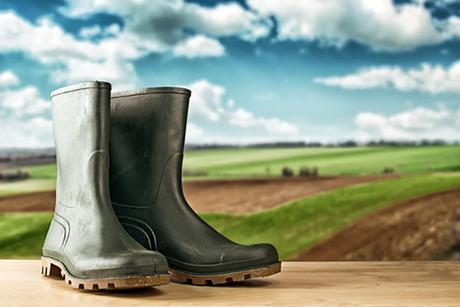Gardening is a healthy and meaningful activity for most people. However, like any outdoor activity, you are at risk for insect bites, chemical exposure, and garden tool-related injuries.
As much as you would like to beautify your home’s curb appeal by planting blooms, mowing your lawn, and creating flower beds, it’s important to take safety precautions when handling gardening tools, equipment, and chemicals to avoid accidents.
Here are some tips to stay safe while you’re working in your garden:
1. Wear Boots to Protect Your Feet

Your feet are easily exposed to elements, irritating grass, and sharp gardening tool blades if you don’t wear the appropriate footwear.
If you have diabetes, you need to be extra careful when handling tools, even blunt items, because your chances of getting complications from cuts and wounds are doubled as compared to non-diabetics.
Here are some tips to protect your feet while gardening:
- Waterproof your boots
- If boots are not available, wear high-ankle shoes or steel-shoe
- Apply insect repellent to avoid insect bites on the thigh and leg areas
- Wear waterproof pants or any long pants to avoid exposing the skin in your lower extremities
2. Wear Gloves to Protect Your Hands
As much as you would like to feel nature by working on your garden with bare hands, there are risks associated with it. Even a small cut results to infection when exposed to soil and dirt. Why is wearing gloves important?
Here are the good reasons why you need to wear gloves when gardening:
- Protect your hands and fingers against bacteria, fungus, pesticides, fertilizers, and insects by wearing gloves. It will reduce skin irritation and blistering.
- Also, it prevents fingernail damage and sun damage.
- Protect your hands against poison ivy, thorns, and sharp objects by wearing leather gloves or thick rubber gloves.
3. Use the Right Gardening Tools
Gardening tools are intended to make your life a lot easier and to protect yourself from injuries.
Don’t dig using your hands. Instead, use a shovel or rake because sharp debris and objects buried in the ground may cut you. Here are some useful tips when choosing and handling gardening tools:
- When buying loppers, shears, or pruners, choose brands that feature a safety lock.
- Strictly follow the manufacturer’s instructions or check the manual when it’s your first time operating a new gardening tool.
- Avoid purchasing gardening tools with form-fitting handles because these tools only fit one size of a hand, which add more stress on too small or too large hands.
- Store garden tools and equipment away from children’s reach.
- When not in use, always make it a habit of unplugging electrical tools or disconnecting the spark plug wires on your gasoline-powered tools.
4. Safe Handling of Chemicals and Fertilizers
Check the manufacturer’s instructions on how to properly apply and store fertilizers, as well as how to correctly discard unused chemicals.
Here are some helpful tips when handling fertilizers:
- Buy only enough amount or size of fertilizer for one-time use to avoid wasting and accidental swallowing.
- Keep chemicals and fertilizers out of children’s reach. Don’t leave empty fertilizer bottles scattered around.
- Always keep the emergency contact number of your poison control center on your smartphone or reminder pin-board.
5. Observe Proper Movements and Posture
Repetitive movements, such as pruning bushes, trim hedges, planting bulbs, raking, and digging, can cause joint strain and nerve irritation.
To prevent musculoskeletal problems, here are some safety tips for you:
- Vary and rotate tasks every 10 to 15 minutes
- Rest in-between tasks to avoid straining the muscles
- Avoid carrying heavy garden loads (e.g., grass, hay, or plants) abruptly
6. Know the Basic First-aid
Equip yourself with the right knowledge to act quickly in times of emergency.
Here are some helpful tips in case of injury:
- Apply direct pressure if you accidentally cut your finger using a clean cloth.
- If the bleeding does not stop because of a large cut after 15 minutes, you need to visit the emergency room. Also, do the same if you feel persistent tingling sensations or numbness and you’re unsure of your tetanus immunization status.
Conclusion
It’s fun and exciting, most especially during summer. To fully enjoy this physical activity, you need to gear up so you can protect yourself.
As prevention, get yourself vaccinated with anti-tetanus. Reduce exposure to fertilizers, use power tools appropriately, and read the manufacturer’s instructions when handling gardening equipment for the first time.
